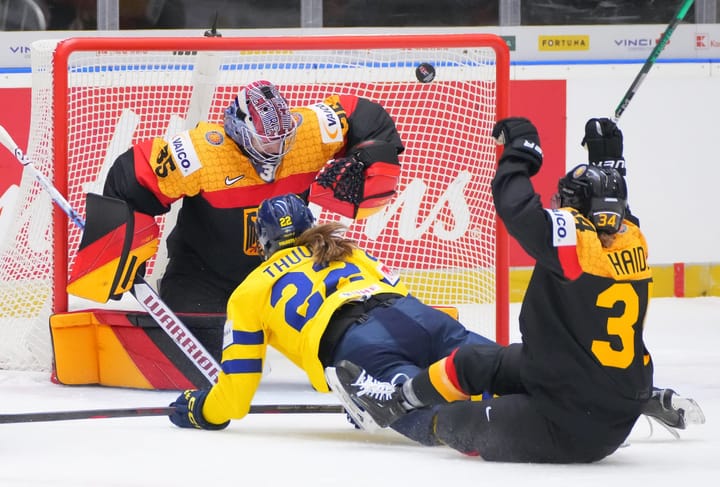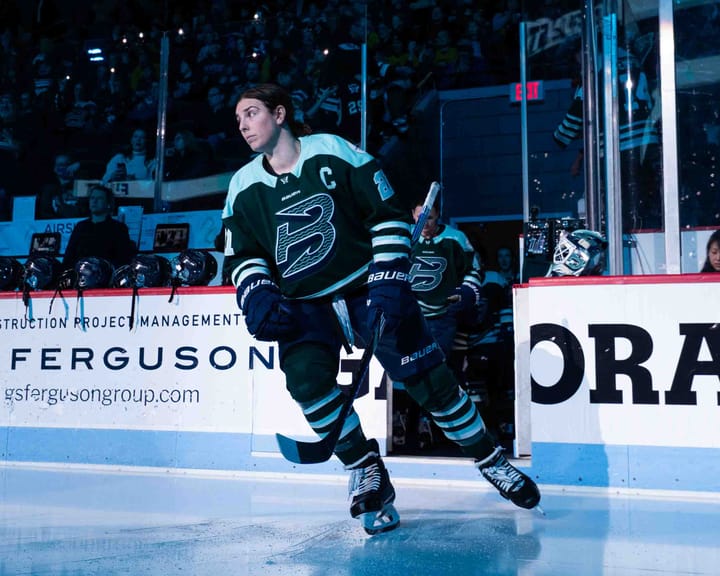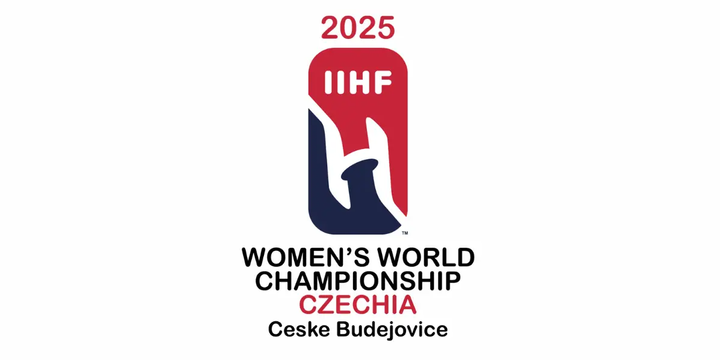Q & A with Leksands IF’s Gracen Hirschy
Indiana isn’t exactly famous. The often-forgotten 19th state in the union is known for corn, more corn, the Indianapolis 500, and college basketball. Did we mention corn? For those wearing the demonym Hoosier by birth or by choice, it’s home. For others, it’s a place to pass through en route to somewhere else.
Leksand defender Gracen Hirschy’s story has taken her to the now-deceased North Dakota women’s hockey program and across the world to Sweden and the SDHL, but it starts in Indiana. In particular, it starts in Fort Wayne, 125 miles northeast of the state capital.
How did you get interested in hockey? How old were you when you started playing?
When I was a baby my family had season tickets to the Fort Wayne Komets games, which is the professional hockey team in the ECHL currently. None of my family actually played, but my Grandpa was a huge fan and always went to the games and watched NHL games on TV. My family noticed that I wasn’t like most other children and instead of running around, I would sit and watch the game very closely. When I was three years old my mom enrolled me in the Fort Wayne initiation hockey program.
What’s the hockey culture like in Fort Wayne?
While growing up in Fort Wayne the hockey wasn’t huge, but it existed because everyone knew about the Fort Wayne Komets. There were opportunities in the area to play on youth travel teams and even participate in summer camps. However, there wasn’t any girls’ hockey; I was always the only girl on any of my boys’ teams growing up. I’d get weird looks. Even to this day I’ll get a response like, “I didn’t know girls played hockey.”
Playing on an all boys’ team made me have a desire to compete at a higher level because I felt like I had something to prove: girls could play hockey too. I haven’t spent a lot of time in the area since I left for college. I spent all of my summers back in Grand Forks for training reasons. I have three little sisters that played hockey in Fort Wayne for a number of years. I would find myself at the rink at times to watch them. You tend to see more girls playing hockey now than when I was growing up. I think with Trine University adding a women’s NCAA team there is a lot of potential for hockey in Fort Wayne to keep growing.
How old were you when you left home for hockey? What was that like?
I was 13, going into my freshman year of high school when I decided to leave home for Culver Academy. At the time, I was practicing with a boys’ team in Fort Wayne and going to New Haven Middle School.
On the weekends, I would practice or play in tournaments with Team Pittsburgh, an all girl’s program. My mom and I drove over 600 miles almost every weekend for practices or tournaments. The amount of travel and lack of ice time made me realize if hockey was something I was going to take seriously I would need to entertain the idea of leaving home.
I was pretty naïve about the opportunities that existed for me to take my game to the next level. I was lucky enough that the Culver coach saw me at a Mid Am tryout and reached out to me. It was really the only option I looked at. At first I was worried I wasn’t going to be able to go to Culver because it was a big financial commitment. I’m certain that I wouldn’t be where I am in my hockey career today if I stayed in Fort Wayne. However, at the end of the day I got the opportunity to attend Culver and that really was the catalyst to my hockey career.
At Culver I was able to get on the ice everyday, which allowed me to take my game to the next level and give me the chance to play on the U18 National team and get a scholarship to play DI college hockey at the University of North Dakota. Overall, leaving home was never a real issue for me. Culver was only an hour and a half from my home, so I got to see my family quite often.
What made you choose Leksand?
Funny story actually. After playing with Djurgården for the 2018 playoffs I knew I wanted to come back to the SDHL. It was more of a question where I would end up. I was in talks with a few teams at the time, when my old college teammate, Samantha Hanson, called one morning to tell me she just signed with Leksand for the upcoming season. I signed like two or three days later.
Leksand is easily comparable to Grand Forks, which is where I lived an amazing four years while I was in college. I knew I didn’t want to be in a big city and the fact it was small town with a rich hockey culture made it the perfect fit for me.
Obviously there’s a bit of a difference between Nordic culture and Midwestern culture: less small talk, less chatting with strangers in line at the grocery store, better coffee, etc. How have you noticed yourself adapting?
I find myself adapting quite well here in Sweden. The Swedes don’t go out of their way to wave like you might find back at home. They tend to be a little more private. I’ve also noticed that it is more laid back here. People don’t seem as rushed, and they don’t have this “go-go-go” lifestyle as they do in the States. My teammates make fun of us for our food choices like when we put lingonberries on our cracker bread. Luckily, I am not a picky eater and haven’t found a food I don’t like. There are lots of fish and carbs in my diet these days.
The language barrier can be a difficult challenge too. Since Leksand is such a small town and a few hours away from a major city, there isn’t a lot of English spoken. Simple things like ordering pizza, going to the bank, or trying to find something in the grocery story can be a pain. The Swedes on our team are starting to understand our sarcasm and they are not afraid to give it back.
What have you enjoyed most about Sweden so far?
One of the things I love about Sweden is the concept of “fika.” This is when you get together with friends and family for a coffee and a pastry. The coffee is great and there is an abundance of pastries to choose from. Fika is more than just a coffee break, it gives you an opportunity to sit around a table for a few hours and enjoy each other’s company.
Obviously, fika wouldn’t be as great if it wasn’t for my teammates who join me. They have been very welcoming and one of the main reasons I love it here in Sweden. They make it easy to be far away from home and are always willing to help me when I need it, whether it’s finding something in the grocery store or translating something to English.
What do you miss most about the Midwest?
I would have to say the one thing I miss the most about the Midwest is my family. When I was playing back in the States — no matter if it was youth or college hockey — my family came to most, if not all my games. Now that I am over 4,000 miles away, it’s a little more challenging to come watch my games and it’s different not seeing them up in the stands. But even with the time change, they find a way to watch online and rarely ever miss a game. I can always count on a post-game text from my grandma, grandpa, and mom.
I could have all the skill and work ethic in the world but without their unconditional support I would not be where I am today. From the very start of my hockey career [until] now they have been my rock and I could not thank them enough for everything they have done for me.





Comments ()